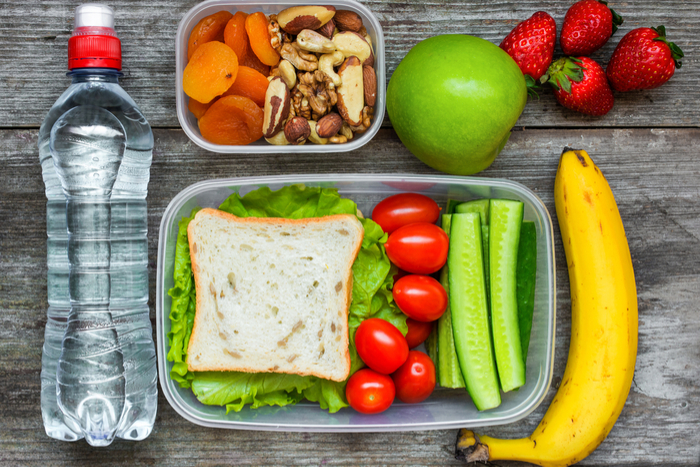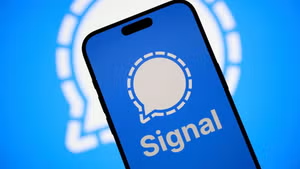How To
How your diet can affect your productivity

- October 9, 2018
- Updated: July 2, 2025 at 5:55 AM

Productivity isn’t just about calendars and to-do lists. There’s a lot that comes into play. How well did we sleep, how are things going at home, or with that new relationship?
And then there’s what we eat.
You’ve probably heard the old saying; you are what you eat. But, it’s worth repeating.
Research from scientists at Brigham Young University found that employees with unhealthy diets are 66% more likely to report lost productivity than their health-conscious counterparts.
And while that statistic is what’s behind employers’ sudden push toward wellness programs and health initiatives, it’s worth examining how your eating habits are getting in the way of your to-dos.
How your diet can affect your productivity
Simple carbs may be the culprit

Ever notice how making the wrong choice at lunch can lead to a midday slump?
The reason for this is certain foods like pasta, bread, sugary snacks release their glucose right away. So, up front, you’ll get a burst of energy, followed by a hard crash.
Bottom line—opt for a big plate of noodles at lunch and you’ll regret it with heavy eyelids later in the day.
Don’t skip meals
When we get busy, sometimes we forget to eat. And, in all honesty, it doesn’t seem like a huge deal to skip breakfast in favor of more sleep. Working through lunch can give you a head start on preparing for your presentation. Why eat when there’s better stuff to do?
The fact is, we need that “fuel” to make it through the day. Our brains consume about 20% of our body’s total energy. As such, skipping meals can wreak havoc on your productivity, placing you further behind than you’d be if you took a few minutes to eat lunch.
Instead, make sure you eat a healthy breakfast. Whole grains, fruit, vegetables, and lean protein are your best bets. It doesn’t take much to eat a hardboiled egg or Greek yogurt on the way out the door, right?
Try eating smaller meals, more often

Your brain needs glucose and fat to keep going. Glucose provides a quick boost, as mentioned, while fat provides a sustained source of energy. We break down fat at a much slower rate, bringing more sustained energy to the table.
Snacking throughout the day can keep us feeling sharp. So, consider bringing fruit, hummus, and carrots, an avocado, or some whole grain crackers to the office. This way, you won’t be tempted by things like cookies or chips that don’t do us any favors.
Oh, and don’t forget to drink water
While water doesn’t exactly qualify as food, staying hydrated has a huge impact on our work performance. As the day wears on, our water levels begin to decrease, which can impact our brain function. Aim for eight glasses of water a day for best results.
If it’s hard for you to make room for good old H20, invest in a big water bottle and make sure you fill it up each day. Or, download the Daily Water — Drink Reminder App for some extra motivation.
Diets impact sleep, too
Our bodies operate on something called circadian rhythms, which tell us when we’re tired and dictate the times we feel most alert.
Now, not everyone is on the same circadian cycle–as evidenced by that test that determines whether you’re a lark or an owl or whatever. But, consistency is vital.
It’s smart to keep track of which times are most productive for you and plan your tasks and meals around your schedule.
But, back to sleep.
Plenty of things can mess with your circadian rhythms, but one of the main things is nutrition. What you eat and when you eat impacts how well we sleep. Follow your internal clock when planning your meals, so you’re not awake or wiped out at the wrong times.
In terms of eating for better sleep, there’s a reason that “they” say you’re supposed to eat your most substantial meal in the morning. Overeating in the evening signals to the brain that it’s time to get things done. Additionally, fatty foods are better for earlier in the day, keeping you going through the morning. Healthy fats like salmon, avocado, and nuts
In the evening, switch gears. Foods like poultry and eggs contain tryptophan, which will help you fall asleep. Calcium and magnesium help the body process sleep hormones, promoting better sleep, and whole grains and white rice help tryptophan take effect.
So–for dinner, try eating something like chicken with rice and kale–tasty, healthy, and perfect for winding down at the end of the day.
How to get ahead of bad diet decisions
For one, planning is the best defense against reaching for a cheeseburger in desperation. Don’t decide what to eat when you’re starving. Choose where to go for lunch after you’ve had a snack.
If you have time, make sure you stock up on healthy snacks and easy meal ingredients ahead of the work week. So, stock up on yogurts (no-sugar-added!), almonds, protein bars, and smoothie ingredients.
Make a point of eating produce every day. This 2015 study found that eating fruits and vegetables is linked to “greater flourishing” in daily life. Meaning, people who eat produce felt more curious and engaged with their daily activities.
Eating healthy no doubt has an impact on how we feel and how we look, but also how we work. So, if that means you need to fill your desk drawer with protein bars, apples, and berries, so be it.
Grace is a painter turned freelance writer who specializes in blogging, content strategy, and sales copy. She primarily lends her skills to SaaS, tech, and digital marketing companies.
Latest from Grace Sweeney
You may also like
 News
NewsProSpy and ToSpy: the latest spyware threats disguised as messaging applications
Read more
 News
NewsPersonalized ads are coming to Facebook and Instagram thanks to conversations with AI
Read more
 News
NewsThese are the new releases coming to Crunchyroll this fall
Read more
 News
NewsElon Musk asks followers to cancel their Netflix subscriptions
Read more
 News
NewsThe Russos share an image that could provide clues about the upcoming Avengers movie
Read more
 News
NewsThe queer dating reality show on Netflix has come to an end and will not have a third season
Read more
